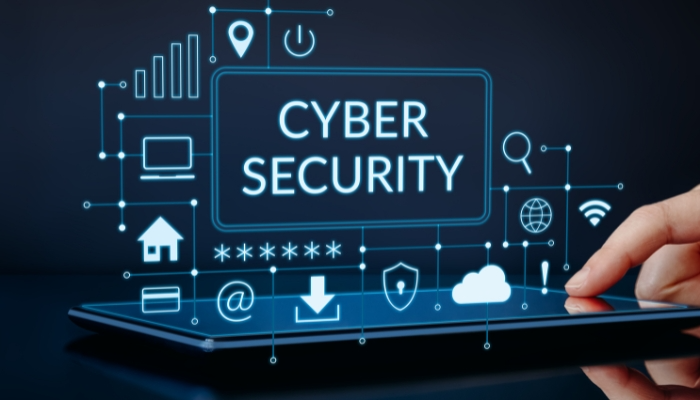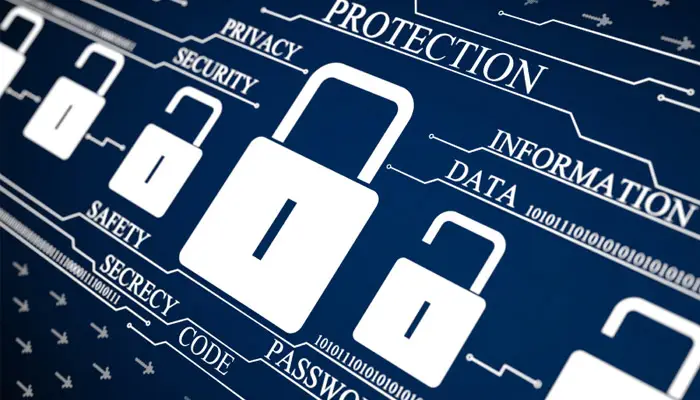15
+
YEARS OF
EXPERIENCE
1000
+
SUCCESSFUL
Projects
80
+
Satisfied
Clients

In light of International Cybersecurity Month, we’re sharing our top tips for keeping your digital workspace safe when working from home. Whether you’re a UAE business owner looking at how to keep your company safe or an employee wondering what counts as best practice when working remotely, this article is here to help. Through an exploration of the common cybersecurity threats that remote workers encounter and an examination of the repercussions of security breaches, we aim to empower individuals and organisations with the knowledge and tools needed to protect their digital workspace effectively.
In recent years, the traditional office setup has been disrupted by a profound shift towards flexible work arrangements, where employees are no longer tethered to physical office spaces. This transformation has been accelerated by advances in technology, changing attitudes towards work-life balance, and the global events of the past few years.
Amid this evolution, the importance of cybersecurity has emerged as an inextricable facet of this new remote work paradigm. As organisations and individuals embrace the benefits of remote work, they must also contend with a heightened level of cybersecurity risk. The ability to work from home, a café, or any remote location of one’s choosing should not be overshadowed by the looming threat of cyberattacks, data breaches, and digital vulnerabilities.
What are the cybersecurity risks of remote work?

Phishing Attacks
Phishing attacks persist as a pervasive menace in the world of remote work. These insidious campaigns prey on human psychology, employing cunning tactics to deceive individuals into divulging sensitive information or unwittingly clicking on malicious links.
Endpoint Vulnerabilities
Remote work often hinges on the use of various endpoint devices, including laptops, smartphones, and tablets. These devices, while essential for productivity, harbour vulnerabilities that malicious factors are keen to exploit. Unpatched software, lax security measures, and inadvertent misconfigurations render these endpoints susceptible to a spectrum of cyber threats.
Unsecured Wi-Fi Networks
One hallmark of remote work is the freedom to work from a variety of locations, each offering a different Wi-Fi network. However, the convenience of such arrangements can also be a vulnerability. Connecting to unsecured or public Wi-Fi networks without the appropriate safeguards opens the door to a range of potential cyber threats, from eavesdropping to data interception.
What are the impacts of a cybersecurity breach?
The consequences of security breaches in the remote work arena extend far beyond the confines of technology. They cast a shadow that affects both individuals and the organisations they serve.
For Remote Workers
A security breach can cast a long and distressing shadow on the lives of remote workers. The aftermath may include personal data exposure, financial loss, identity theft, and the emotional turmoil of being violated in the digital realm. For individuals who seek the comfort and convenience of remote work, these incidents can shatter the illusion of safety.
For Organisations
Security breaches represent an existential threat to the very core of organisations. The financial consequences of a cybersecurity breach alone are substantial, encompassing expenses related to incident response, legal fees, regulatory fines, and compensation to affected individuals.
Beyond monetary losses, a data breach can tarnish an organisation’s reputation, eroding trust among customers, partners, and stakeholders, potentially leading to a loss of business and revenue. Meanwhile, legal actions from affected individuals and regulatory bodies may follow, depending on the breach’s nature and data involved, with non-compliance incurring hefty fines. Furthermore, a cybersecurity breach can disrupt normal business operations as systems may need to be shut down or isolated to contain the breach, resulting in downtime and reduced productivity, while the loss or theft of sensitive intellectual property or proprietary information can also harm an organisation’s competitive position.
As if that wasn’t enough, a cyberattack and its aftermath can severely erode customer trust and negatively impact long-term revenue. Managing the aftermath of a breach diverts resources, including IT staff, legal experts, and communication professionals, from other strategic initiatives.







Our top tips for combining cybersecurity audit and remote work
So, what can you do to protect your UAE company from the above while still embracing the hybrid model of work?
Lock your workstations
It might sound like common sense, but this is one of the most crucial aspects to ensuring cybersecurity. Wherever you work, be it at home, a coffee shop, or even the office itself, you should always take care to lock your workstation when you leave it. Of course, for safety reasons, laptops should never be left unattended in public anyway, but this rule still applies if your friend or colleague is looking after it too.
Organisational policies that require employees to lock their workstations when stepping away can prevent unauthorised access, as an unattended workstation is an open invitation for malicious actors. However, even if your business does not have such a policy in place, remote workers should make it a habit to lock their computers when not in use anyway, adding an extra layer of security to their workspace.
Password strength
Another crucial aspect of cybersecurity is password strength. Organisations should mandate the use of complex passwords that include a combination of letters, numbers, and special characters. Additionally, they should encourage password changes at regular intervals. On the individual level, remote workers should follow these guidelines diligently, creating strong and unique passwords for different accounts and avoiding the use of easily guessable information, such as birthdays or common words. Password management tools can be invaluable in generating and storing secure passwords.
MFA when WFH
Even if your password is strong, Multi-Factor Authentication (MFA) significantly bolsters cybersecurity for remote workers by adding an additional layer of identity verification beyond traditional username and password credentials. In remote work scenarios, where employees often access company systems and data from various locations and devices, MFA is a crucial defence mechanism.
Firstly, it mitigates the risk of password compromise, which is a common attack vector. Even if an attacker manages to steal or guess a remote worker’s password, they would still need the second factor, such as a time-sensitive code from a mobile app or a hardware token, to gain access. This makes unauthorised access much more challenging, reducing the risk of account breaches.
Secondly, MFA often generates real-time alerts or notifications, allowing remote workers to be promptly informed of any suspicious login attempts. This feature empowers employees to take immediate action if they detect any unauthorised access, further enhancing cybersecurity for remote work environments.

answer time
satisfaction
score
on initial call
same business
day
Conclusion
In conclusion, as remote work continues to be an integral part of the modern workforce, cybersecurity remains an absolute imperative. Both organisations and remote workers must proactively implement robust security measures to mitigate the evolving threats in this dynamic landscape. Implementing Multi-Factor Authentication (MFA) ensures that access to critical systems and data remains secure by requiring the user to provide multiple forms of authentication, significantly reducing the risk of unauthorised access. Simultaneously, the use of Virtual Private Networks (VPNs) adds a crucial layer of defence by encrypting data traffic, effectively extending the corporate security perimeter, and safeguarding data in transit. Together, these cybersecurity measures create a fortified digital workspace for remote workers, enhancing the overall security posture of organisations in an era where remote work has become the new norm.
In the ever-evolving world of remote work, the collaboration between organisations and remote workers is vital in maintaining a secure digital environment. It is essential to recognize that cybersecurity is a shared responsibility, and adopting best practices, such as MFA and VPN usage, can significantly reduce the risk of cyberattacks and data breaches. As remote work continues to shape the future of work, a steadfast commitment to cybersecurity ensures that individuals and organisations can fully reap the benefits of flexibility and productivity while protecting their digital assets and sensitive information.

